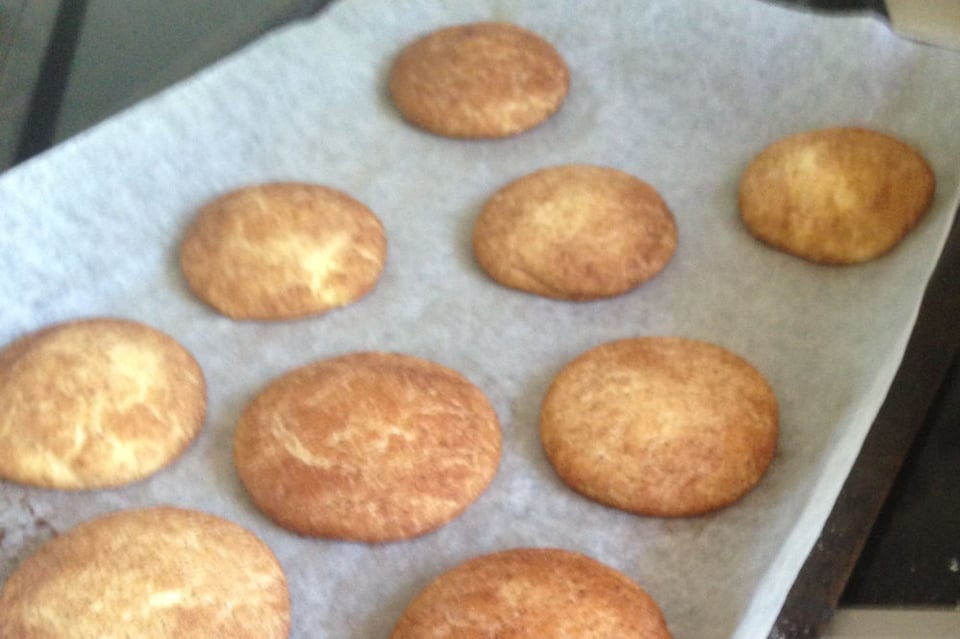Does your organisation have a sprained toe?
At karate recently, I suffered an injury most grievous: I sprained my left pinkie toe. As a right-hander, this toe is arguably the smallest and least useful toe of them all. It’s not load bearing, its contribution to stability is minor at best. And yet, it has affected my entire body.
I hadn’t realised how much I use those pinky toes to grip and balance on uncertain ground. How my knees, hips and back are now aching because I’ve adjusted how I walk. The twinge when I try to get my sock on. My small emotional shock every time I see the spectacular purple and green bruise spreading across my foot. And unlike a sprained ankle, I can’t pop a compression bandage on it. The best I can do is wear supportive shoes to provide additional stability, while my pinkie toe recovers.
I once worked with a client whose team was the pinky toe of the company. They handled server operations, their work didn’t directly tie in with any of the grand strategic goals, and they felt like nobody really knew what the team did. But then the toe was sprained: one person moved on to another company, and another of the team had extended time off for parenting leave. Suddenly their previously invisible department went to fire-fighting mode because they had lost capacity. They tried to protect themselves by putting in place stricter requirements before they would accept new work. The wider organisation was now feeling the impact.
There can be individuals or teams in any organisation that are like a pinkie toe. Often taken for granted, possibly smaller than other areas in team size, or salaries, or other resources. They’re just part of the whole. But when they suffer an injury, the effects are felt not just locally, but across the entire ecosystem.
Do you have a sprained toe in your team? What are you doing to support your toe and get it back to operational status? What could you do differently to protect against future injuries?
~ Nicola
What’s been happening?
Leading Engineering Teams workshop
A Head of Engineering who attended at our LET workshop last month gave us this testimonial:
I came away from the Leading Engineering Teams workshop with many practical insights. Elle and Lachlan create a unique space that is fun, respectful, and open. The mix of concise pre‑recorded learning videos, live sessions with a small group, and reflective questions after each day made for a great learning experience. It was incredibly valuable to learn from their extensive experience leading teams and to practice real scenarios for the topics discussed alongside other participants.
This workshop reminded me of the book The Invisible Gorilla: without the right frameworks, questions, and focus, it’s easy to miss what matters with everything else going on. Each day provides you with applicable tools to understand your team better and improve culture, productivity, and collaboration.
Thanks, Sebastian! We loved your contributions to the discussions and the experience as a whole.
For anyone interested in a similar experience, our next Leading Engineering Teams workshop is running November 24-27
Group coaching
Are you looking for ways to improve your leadership skills and team performance? Our second group coaching program is designed specifically for you!
A question we asked our last group coaching cohort is: “What’s one thing you’ll do differently because of this program?”. And their answers:
Helping others think about change in different ways
Managing my own productivity so I have a better foundation of time and energy, to lead others.
Always seek a group of external peers: I get a lot of energy, ideas and new reflections
With two IECL certified coaches to facilitate and guide the sessions, you'll work with a small group of peers to explore specific areas related to leadership and team performance. The program includes an initial call, six online two-hour sessions, access to a private space, unlimited async access to your coach, and a wrap-up group call.
Early bird tickets are available for the next 5 days only. So, don't wait, book your spot in our upcoming cohort today!
Learn more at https://blackmill.co/coaching-training/group-coaching. Or book an obligation free chat to explore your journey and your needs.
What are we reading?
What's the ROI on coaching? – Nicola talks about four leadership skills that are hard to learn, and how coaching can help
Experimental evidence of massive-scale emotional contagion through social networks – As Nicola put it upon reading this: Facebook. Still being evil. But also: when working with people predominantly online, even just within Slack or Discord, this study suggests that emotional contagion will also take place.
As leaders, the importance of confining pessimism to appropriate smaller circles (rather than public) is now proven by science on an unsuspecting population.Strategy & Urgency – John Cutler on how reframing urgency can help you be more strategic and prioritise more effectively.
Less is more, in pizzas and in teams – Elle started a fortnightly newsletter on LinkedIn and her first editorial talks about scaling team and even includes a pizza dough recipe.
Failure modes for engineering team leads... and how to avoid them – Lior Neu-ner explains five ways new team leads struggle to balance their new responsibilities with continuing as a developer.
Motivating your team when promotions are frozen – Keeping motivation high during a period of uncertainty can be difficult. Meg Adams illustrates the power of perceived autonomy as a tool for motivation and development of your teams.

A cuppa with Dr Jay Rosenbaum
This month we interview Dr Jay Rosenbaum (they/them), who is using AI to produce some thought-provoking content… about AI. You can read, and see, more about their work on their website at https://jrosenbaum.com.au/, including their latest piece, “Slopocene Icons”.
1. What do you do? And what do you like about your work?
I am an artist, researcher and lecturer in the Digital Design department at RMIT. I love showing people the problems of AI with AI, and I love exploring new technologies. Teaching is a relatively new passion but one I adore; I get to think about my work in new ways and share ways to think critically with a new generation.
2. What aspect of your work do you find most challenging?
I was so enthusiastic about AI until generative AI came out, and I have a hard time reconciling the work that I do with my personal ethics. But I am turning that challenge into a way to explore those problems and show people the problems in an interactive way.
3. What are you passionate about?
I am passionate about AI ethics, making art, teaching, 3D printing, music, and dungeons and dragons. I find a lot of those passions really start to connect when I teach, and when I make new work. You never know how they are going to intersect!
4. What are recent accomplishments you are happy with?
I achieved a major goal recently showing [my work at Fed Square(https://jrosenbaum.com.au/event/now-or-never-intraconnection/) on the big screen! That was a huge moment for me. I am currently a part of a residency where I am learning so much and engaging with other artists and making new work. My newest art relates to my [latest paper publication(https://link.springer.com/article/10.1007/s00146-025-02491-8") and I am so happy to be exploring this theme of AI slop and fascism.
5. What is one mistake that you will never make again?
I make so many mistakes and often over and over again. I'm a work in progress and always will be. I think if there is one mistake I won't make again, it is not applying for an opportunity that I want just because I might not get it. If I don't apply I definitely won't get it, so I may as well try and learn something in the process!
6. How do you manage stress?
Oh very very badly. Lately I've been prioritising rest, which is crucial as a person with disabilities, and learning how to set boundaries around my time. I've been prioritising time for myself away from work to engage in a hobby like playing music or D&D or playing games. I try to go to bed early to try and get enough sleep.
Do any of these work? I'm not sure, but I'm working very hard at it!
7. What is the best advice you can give?
A lot of people say to be yourself, which is a hard place to start.
My advice is to surround yourself with people who make you want to be the best version of yourself. Through that you can start to work out who you are. The best version of yourself can change from day to day and the people who understand that will appreciate that about you and you will appreciate it about them too!
8. What one thing would you change about our society?
No more billionaires. Their money gets divided up and used to support our critical infrastructure and community services.
9. What are your goals or aspirations for this year?
Obviously a show at ACCA or MONA is next! No, my (more realistic) goals for the next 12 months are to continue to take better care of myself, and to make more art.

I have two more shows coming up, one at Bunjil place during September, and one at Collingwood Yards in early October, and I want to continue to spread the word about generative AI as a fascist aesthetic through my art, teaching, speaking and publications!
What are we cooking?
Snickerdoodle Cookies (DF, GF)

Jay makes Betty Crocker's classic snickerdoodle cookies but with a gluten and dairy-free twist: they are best while they are still warm!
Ingredients: cookie
1 1/2 cups sugar
1 cup Nuttelex
2 large eggs
2 3/4 cups gluten free flour
2 tsp cream of tartar
1 tsp baking soda
1/4 tsp salt
Ingredients: coating
1/4 cup sugar
2 tsp ground cinnamon
Instructions
Heat oven to 190°C/400°F.
Mix sugar, Nuttelex, and eggs in large bowl until light and creamy, about one minute.
Stir in flour, cream of tartar, baking soda, and salt. Mix just until the dry ingredients are incorporated, about 30 seconds.
In a small bowl, mix 1/4 cup sugar and the cinnamon for the cinnamon sugar coating.
Shape dough into 1 1/4-inch balls. Roll balls in cinnamon-sugar mixture. Place 2 inches apart on ungreased cookie tray.
Bake for 8 minutes or until set. Remove from cookie tray to wire rack to cool.
And we’re out
Thank you for showing an interest in our newsletter and we hope that you enjoyed the read. Feel free to contact us if you have any feedback, a burning question, or just a recipe that you would like to share. Until next time, keep learning!
Everyone at Blackmill